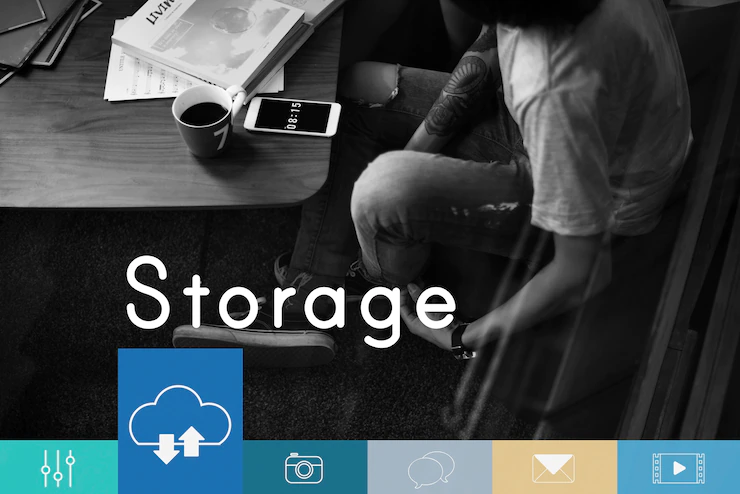Despite growth-hampering lockdowns, business closures, and economic downfalls during the Covid-19 era, the M&A industry flourished like none other.
There were record mergers, acquisitions, consolidations, and divestitures, as 2021 was the best-ever year in the history of the M&A industry. The total deal value in the same year went to $5.9 trillion — an unprecedented figure in the M&A sector.
87% percent of these transactions took place through digital platforms. Virtual data rooms stood among the most used virtual platforms to facilitate M&A activities. Data room software boasts an edge over many other virtual collaboration and data storage platforms like Google Drive or Box.
In this post, you will be able to learn the role of digital data room software in the M&A industry and how it is better than other options.
What Are Virtual Data Rooms?

Virtual or digital data rooms are online data storage and management solutions that allow users to upload, store, share, edit, exchange, and organize business data.
The data room technology consists of a multitude of features for data management, virtual communication, data sharing, and project management.
The interesting thing is that VDR technology is not new to the M&A industry. The M&A deal makers were the first to use virtual data rooms, which gradually spread to other industries.
To read more about digital data room software, its role in different industries, and detailed reviews on common data room vendors, head over to VDR Solutions.
Virtual Data Rooms: Why Are They Important For M&As?

No matter how small or big the transaction volume is, a virtual data room can help your organization in the following ways:
- They facilitate secure M&A transactions
- VDRs keep all transactions on time
- VDRs provide better insights into the overall deal of health
- Data rooms increase the chances of getting the best deal
- Data rooms significantly cut down transaction costs
1. They facilitate secure M&A transactions
Sharing a vast amount of information is the very nature of acquisitions, mergers, consolidations, divestitures, and similar transactions. A business leaves no stone unturned before buying or merging with another corporate entity. Poor security measures during immense, sensitive data sharing in M&As can lead to data spill, oversharing, or maybe worse than that.
It is easy to understand that a highly secure data-sharing platform is a must-have in M&As. In fact, businesses need a solution that protects sensitive information from internal threats as well.
Virtual data room solutions give sellers more control during the transaction. They can set access permissions just like they want and allow or restrict any user from getting to any file or a section of it. Sellers can also revoke document access and hide unnecessary parts of a document from bidders.
2. VDRs keep all transactions on time
Time is of great importance in M&As, and delays not only increase the cost of the transaction but reduce the chances of successful closures. The due diligence process usually takes time, and misplaced documents, repeat requests, and shipping time make things worse.
Employing digital data room software makes things more efficient. First, there are minimal chances of misplaced documents; every file can be categorized in respective folders and is automatically indexed once uploaded in a folder. Many virtual data room vendors provide a due diligence checklist that makes document organization even better.
Second, everything is available in one place, which all concerned parties can access from anywhere — no need to ship documents. Data rooms have task manager tools that management can use to assign tasks and track the performance of the users.
3. VDRs provide better insights into the overall deal of health
Usually, multiple parties show interest in the transaction, especially during the pre-due diligence stage. However, all of them may not have the same level of interest in going further, and it is difficult to ascertain which buyer is more interested than others.
Data room software helps sellers by giving them detailed insights on deal progress. That said, the data analytics feature in the VDR provides engagement metrics — which file or folder has been opened most by the bidders and buyers.
Apart from that, sellers can know how much time each bidder is spending on documents and which document they review the most. Such information tells the interest level of all the buyers.
4. Data rooms increase the chances of getting the best deal
A digital data room can boost the chances of closing the best possible outcome. That said, when interested buyers proceed to the due diligence stage, sellers can deal with them individually and secretly.
They can do it by creating separate data rooms for all buyers and taking the deal further. Negotiations will continue simultaneously, and in the end, sellers will be in a better position to choose the best offer.
5. Data rooms significantly cut down transaction costs
It is evident from the discussion above that VDRs reduce the cost of the transaction by huge margins. When sellers don’t have to make multiple copies of all due diligence documents and ship them to every potential buyer individually, they can save a lot of money.
Second, the need for physical meetings or document verification decreases greatly, saving meeting costs as well.
Parting Thoughts
It is almost impossible to extract these benefits from general online collaboration tools. Virtual data rooms not only provide the necessary digital security and full control over data flow, but they also speed up the deal process and immensely minimize the transaction cost.
All-in-all, they make M&A transactions fast, secure, and free of the hassle — and that’s what makes data rooms integral in M&A.
Read Also:




























